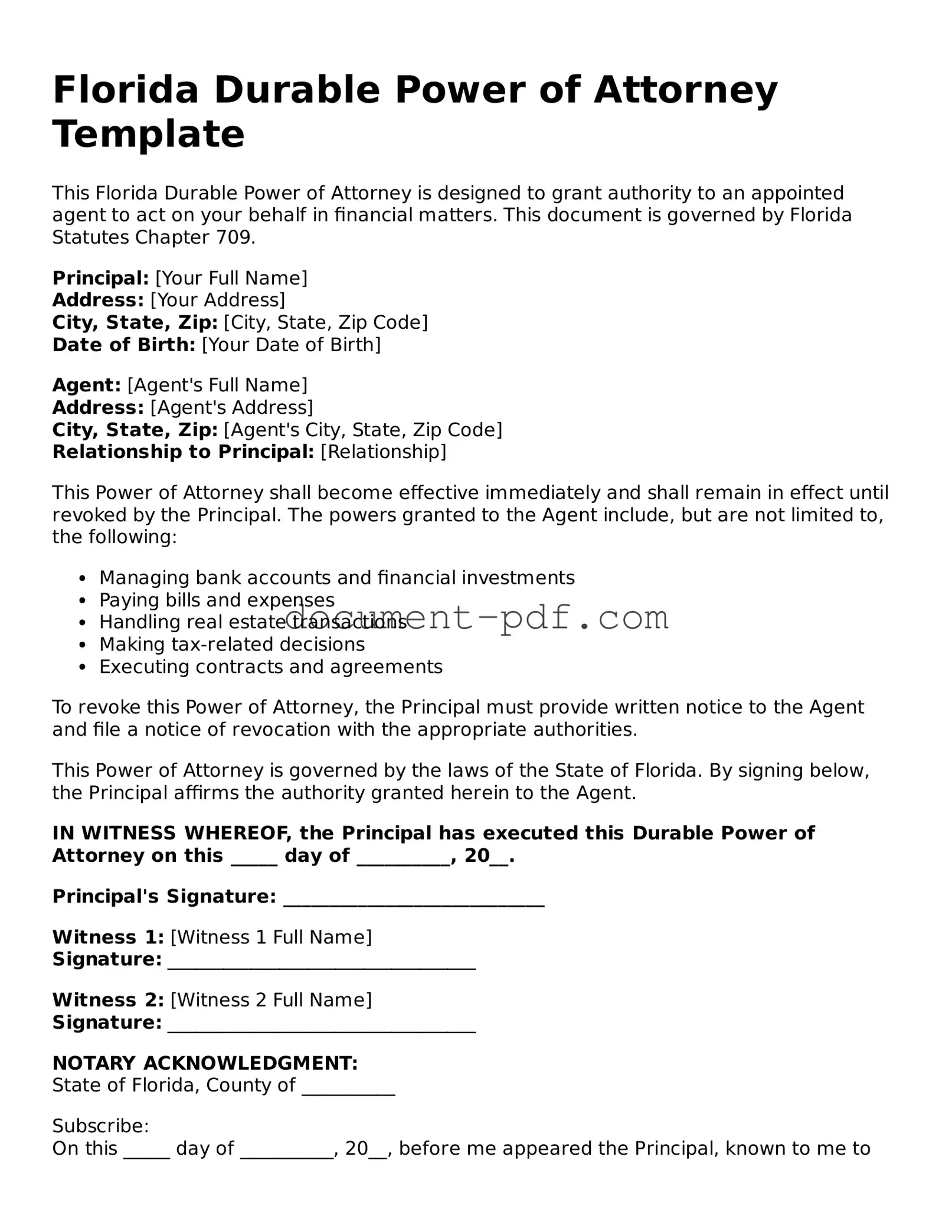Attorney-Verified Florida Power of Attorney Template
The Florida Power of Attorney form is a legal document that allows one person to act on behalf of another in financial or legal matters. This form is essential for ensuring that your wishes are respected when you can’t make decisions for yourself. Ready to take control of your future? Fill out the form by clicking the button below.
Access Power of Attorney Editor Here

Attorney-Verified Florida Power of Attorney Template
Access Power of Attorney Editor Here
Finish the form without slowing down
Edit your Power of Attorney online and download the finished file.
Access Power of Attorney Editor Here
or
Click for PDF Form
